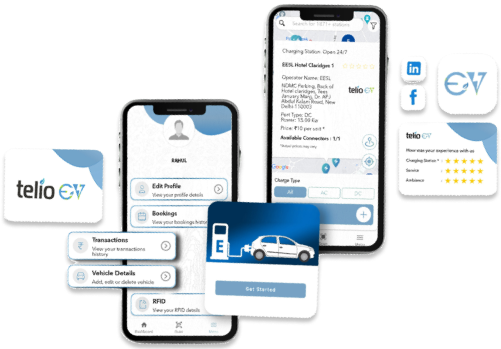Readers Views Point on Electric Vehicle Charging App and Why it is Trending on Social Media
Readers Views Point on Electric Vehicle Charging App and Why it is Trending on Social Media
Blog Article
Enhancing Electric Vehicle Charging with Advanced Management Software

The fast adoption of electric vehicles (EVs) has actually necessitated the development of efficient and user-friendly charging solutions. Central to this evolution are Electric Vehicle Charging Management Software (EV CMS) and EV Charging Apps, which improve the charging process for both operators and users.
Understanding EV Charging Management Software
EV Charging Management Software serves as an extensive platform that enables Charge Point Operators (CPOs) and other stakeholders to monitor, manage, and optimize EV charging stations. Key functionalities include real-time monitoring of charging stations, user authentication, payment processing, and energy management. By incorporating these functions, the software makes sure effective operation and improves the user experience.
Key Features of EV Charging Management Software
1. Real-Time Monitoring and Control: Operators can supervise the status of charging stations, track energy consumption, and address issues promptly.
2. User Authentication and Access Control: The software manages user gain access to, making sure that just authorized individuals can use the charging facilities.
3. Payment Processing: It facilitates smooth deals, supporting different payment methods to cater to varied user choices.
4. Energy Management: By optimizing energy distribution, the software reduces functional expenses and supports grid stability.
5. Reporting and Analytics: Comprehensive data analysis aids in notified decision-making and tactical planning for network growth.
The Role of EV Charging Apps
EV Charging Apps are developed to offer EV owners with convenient access to charging facilities. These applications provide features such as finding close-by charging stations, real-time availability updates, navigation help, and remote monitoring of charging sessions. By enhancing availability and user engagement, these apps play an important role in promoting the adoption of electric vehicles.
Combination with Open Charge Point Interface (OCPI)
The Open Charge Point Interface (OCPI) is a standardized protocol that facilitates interoperability in between different EV charging networks. Combination with OCPI enables smooth roaming, allowing users to access numerous charging networks with a single account. This interoperability enhances user benefit and expands the availability of charging infrastructure.
Advantages of Implementing Advanced Charging Solutions
- Enhanced User Experience: User-friendly interfaces and dependable services increase consumer complete satisfaction and commitment.
- Operational Efficiency: Automation and real-time monitoring lower manual intervention, reducing functional costs.
- Scalability: Advanced software solutions support the growth of charging networks to meet growing need.
- Revenue Generation: Flexible pricing models and efficient payment Electric Vehicle Charging App processing open new earnings streams for operators.
Conclusion
The integration of EV Charging Management Software and user-centric EV Charging Apps is essential in advancing the electric vehicle environment. These technologies not only simplify operations for service providers but likewise substantially improve the charging experience for users. As the EV market continues to grow, the adoption of such innovative solutions will be instrumental in satisfying the increasing need for efficient and available charging facilities. Report this page